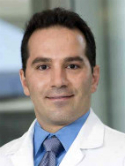| Abstract: |
Treatment for AL amyloidosis aims to eradicate clonal plasma cells, thereby disrupting the amyloid deposition causing organ damage. Risk-adapted high-dose melphalan plus autologous stem cell transplantation (RA-ASCT) is an effective therapy. We conducted a prospective pilot analysis of a comprehensive approach using bortezomib and dexamethasone (BD) before and after RA-ASCT in 19 patients. BD induction (up to 3 cycles of bortezomib 1.3 mg/m2 i.v. and dexamethasone 40 mg orally [p.o.] or i.v. on days 1, 4, 8, and 11) was followed by RA-ASCT and then BD consolidation (6 cycles of bortezomib 1.3 mg/m2i.v. and dexamethasone 20 mg p.o. or i.v. weekly for 4 weeks, every 12 weeks). The overall hematologic response rate (partial response or better) was 95%, including 37% minimal residual disease negative [MRD(-)] complete response (CR) by flow cytometry (sensitivity up to 1/106 cells). At 2 years, progression-free survival (PFS) and overall survival were 68% (95% confidence interval [CI], 50% to 93%) and 84% (95% CI, 69% to 99%), respectively, with median duration of follow-up in survivors of 61 months (range, 42 to 84 months). In a landmark analysis, patients achieving MRD(-) CR had superior PFS (P=. 008). This approach is safe and yields deep and durable remissions promoting organ recovery. Each treatment phase deepened the response. Future aims include improving the efficacy and toxicity of each phase. © 2019 American Society for Transplantation and Cellular Therapy |












